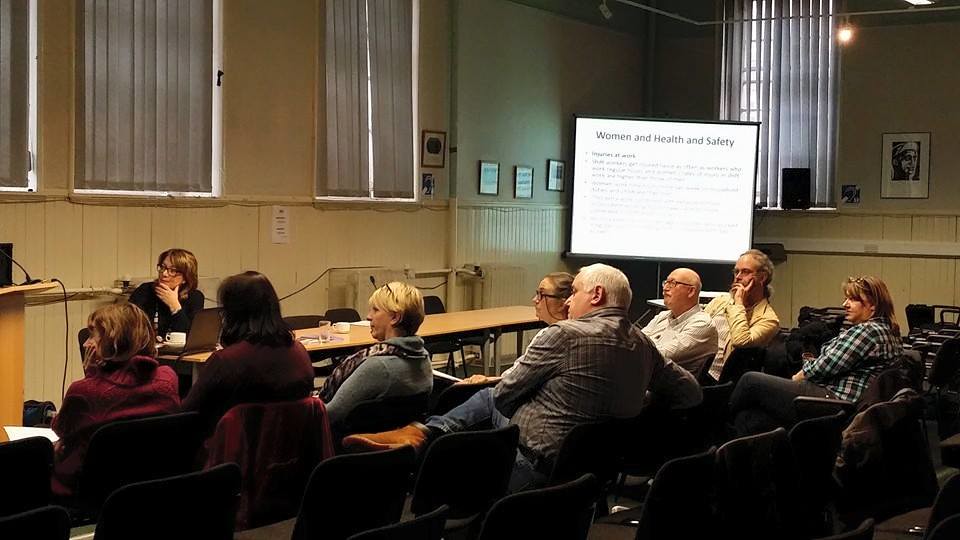In the last three years, the long term downward trend in UK work fatalities has reversed and is plateauing. HSE’s latest fatality statistics released on 7 July 2016 show a provisional total of 144 workers killed in work-related incidents which is slightly upon last year’s final total of 142 last year and 136 the year before. (1). There has been an increase in deaths in construction, up from 35 to 43.
Also, on 7 July 2016, five men were killed at a recycling plant in Birmingham: Saibo Sillahhe; Alimamo Jammeh; Ousman Jabbie; Bangaly Dukureh; Mohammed Jagana, all Spanish nationals from Gambia. This was the third work-related multiple fatality in less than a year in England. Derek Moore, Dorothy Bailey, Derek Barks and Jason Shingler were killed and many injured at Bosley Wood flour miIl explosion on 17th July 2015. Christopher Huxtable, Ken Cresswell, John Shaw and Michael Collings were killed in the collapse of a boiler house while being prepared for demolition at Didcot Power Station on 23rd February 2016. The body of Michael Collings was recovered but the other three workers still lie under the rubble nearly 20 weeks later to the horror and grief of their families.
A Hazards Campaign spokesperson said:
“The past 6 years of Coalition and Tory government have seen huge cuts to the enforcement of laws intended to protect workers, and a constant stream of lies about good health and safety being a ‘burden on business’ (2). There are of course unforeseeable, unpreventable accidents at work, however almost all deaths and injuries at work are due to the poor management of health and safety by employers. We will not know the cause of this latest multiple worker fatality incident until the result of the full investigation. But we would be concerned if there has been a fall in proactive, preventive inspections even in the few high risk industries such as waste and recycling where such inspections are currently still permitted.
“We believe that the stalling in the decline in deaths at work and an increase in ill-health due to work, is a direct result of government policies and the attack on HSE and Local Authorities as regulators and enforcers (3)
“We know, and the families of those killed at work know, that red tape is far better than bloody bandages. No-one died from too much regulation and enforcement but from quite the opposite. (4). We completely oppose any post-Brexit further slashing of workers’ health and safety. We demand that the government put an end to the constant denigration of health and safety regulations and enforcement, and reverse the attacks on budgets and policies at the HSE and Local Authorities, so that workers can be protected properly at work. The HSE’s latest strategy is little more than a business advice brochure and their hashtag, #helpgbworkwell, no more than wishful thinking (5).
“We also urge ministers to meet with us, with Families Against Corporate Killers (6), and the families of those killed at work in Birmingham, at Didcot and Bosley, and all across the country in much less noticed single worker incidents, to explain why their lives have less priority than the freedom of employers to make profits.”
Notes:
- http://press.hse.gov.uk/2016/annual-workplace-fatality-statistics-published/
- Hazards Magazine: ‘Will we survive another Tory term?’ http://www.hazards.org/gallery/willwesurvive.htm
- Hazards Magazine: ‘Cuts to HSE hurts workers’: http://www.hazards.org/safetypimp/buyme.htm
Steve Tombs: ‘Better Regulation- Better for Whom?’ Briefing on cuts to Local Authority enforcement of health and safety, pollution control and food safety: https://www.crimeandjustice.org.uk/sites/crimeandjustice.org.uk/files/Better%20regulation%20briefing%2C%20April%202016_0.pdf - Hazards Magazine: ‘It’s your choice red tape or bloody bandages’; http://www.hazards.org/votetodie/citizensane.htm; ‘We Love red tape it’s better than bloody bandages’: http://www.hazards.org/gallery/weloveredtape.htm
- Hazards Magazine ‘HSE all talk’: http://www.hazards.org/votetodie/alltalk.htm
- Families Against Corporate Killers, FACK, founded in July 2006 http://ww.fack.org.uk
Founder Members:
Dawn and Paul Adams – son Samuel Adams aged 6 killed at Trafford Centre, 10th October 1998
Linzi Herbertson –husband Andrew Herbertson 29, killed at work in January 1998
Mike and Lynne Hutin – son Andrew Hutin 20, killed at work on 8th Nov 2001
Mick & Bet Murphy – son Lewis Murphy 18, killed at work on 21st February 2004
Louise Taggart – brother Michael Adamson 26, killed at work on 4th August 2005
Linda Whelan – son Craig Whelan 23, (and Paul Wakefield) killed at work on 23rd May 2002
Dorothy & Douglas Wright – son Mark Wright 37, killed at work on 13th April 2005
